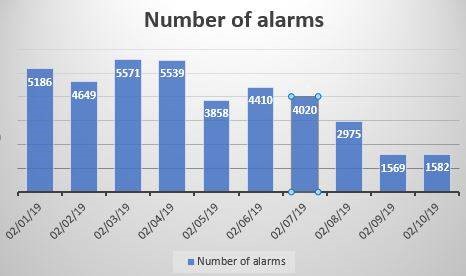Investing the time to optimise the process control system during operations and maintenance is one of the most cost-effective options for increasing production, as it requires no capital expenditure. By choosing DDC Automation you will get in-depth analysis of your current control philosophy and operational practices. Using actual plant data (which may be somewhat different from process design), we will propose and implement changes to optimise the performance of the plant.
Our approach is holistic and includes following aspects:
- Loop Tuning
- Due to the non-linear behaviour of PID loops, periodic review and adjustment of the tuning parameters is required to maintain optimal control of the process; particularly as production rates continue to increase during the first few months of operation.
- Control Philosophy Modifications
- During operation of the plant, ongoing process changes create deviations from the original plant design. Current industry practice often relies on the original control system design to automatically accommodate these changes, which is not always the case. After analysing plant data, we will propose any required changes to the control philosophy and implement them upon approval.
- Alarm Reduction
- The presence of frequent nuisance alarms can have a significant impact on plant safety and downtime, as it results in a gradual decrease in alarm monitoring and operator response time to process events; the value of which is often under-appreciated. During our alarm rationalisation analysis, we will aim to identify and rectify potential issues with the alarming system. These often include faulty equipment, poor instrument setup, inappropriate alarm setpoints and inadequate (or absent) alarm masking.

- Alarm Prioritisation
- With many alarms often coming through simultaneously it is important for the high priority alarms to be clearly highlighted so that the operator can respond to the alarms in an appropriate order. Although every effort is made for the alarm priorities allocated during design to be representative of the process during production, it is only after operating the plant for some time that the actual priorities are truly realised.